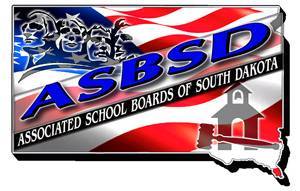After years of need, months of discussion, weeks of review, days of votes and delays, and few changed minds, a bill providing the much needed revenue source for school districts to improve teacher pay took its first step towards becoming law on Monday (2/22).
Members of the House of Representatives voted 47-21 to pass House Bill 1182, which increases the state’s sales tax by a half cent and reduces property taxes. The bill required a 2/3 majority to pass, which equates to 47 votes.
Monday’s passage followed the defeat of the bill by one vote last Thursday (2/18) and a successful motion to reconsider on Friday (2/19). This all after two delays due to invocation of a legislative rule and a committee hearing by House Appropriations that came and went without opposition.
Lengthy debates (each day running more than an hour long) and full House galleries punctuated the passage of HB 1182, which ASBSD supports. Please remember to say “thank you” to the members of the House who supported the bill and respect the decisions of all members.
“We’re grateful to those who supported the bill and for all of their hard work, as well as the hard work of school board members, administrators, teachers and everyone in the public education community who stood up and asked their legislators to support this,” ASBSD Executive Director Wade Pogany said.
“The sales tax increase will provide the much needed sustainable revenue source school districts need to improve teacher pay.”
The half-cent increase would generate more than $60 million in new revenue next year for school districts to put towards raising teacher salaries AND would provide $40 million in property tax relief.
An amendment added to the bill ensures that 63 percent of the revenue generated goes to school districts for teacher pay, with 34 percent going to property tax relief and three percent to tech schools.
Rep. Jackie Sly, a Co-Chair of the Blue Ribbon Task Force, advocated the “state sales tax was the most proven, stable and has potential for the most growth” of any available funding option. The state’s sales tax has not been increased since 1969.
Another amendment added to the bill would reduce the state’s sales tax only if revenue generated from online sales – still pending federal and state approval – equaled what is raised by the half cent added.
Opponents of the bill balked at the proposition of raising the sales tax, with many declaring money could be found in the budget to increase funding for education.
“There’s room in the budget,” Rep. Don Haggar, a member of the appropriations committee, said, adding he has sustainable plan for funding, but has not introduced legislation outlining it.
Rep. Dan Dryden, also an appropriator, rebuffed the idea of additional funding plans, noting there were none with “sustainability” and that HB 1182 was “really the only viable solution. Appropriators did investigate potential cuts to agency budgets as a “Plan B” last week in response to the loss in HB 1182’s initial vote.
“Tell me where to get the money,” Rep. Ray Ring, also an appropriations committee member, proclaimed during Monday’s debate.
Opponents also cited schools had dollars in general fund reserves and that additional revenue was not guaranteed to reach teachers.
A third amendment added on the House floor would demand 85 percent of the new revenue schools receive be spent on certified instructional staff, with a penalty of a 50 percent of the increased state aid be returned to state if the target is not met.
Senate Bill 131 – a bill included in the education funding increase proposal package – also includes a provision capping the general fund reserves of schools. SB 131 awaits approval by the Senate. Rep. Kyle Schoenfish noted school district reserve funds are not at a level that would sustain teacher pay increases.
As HB 1182 advances across the hall in the Capitol, Rep. Sly cited the cause and effect of the bill.
“South Dakota needs top notch teachers to educate the youth of today,” Rep. Sly said. “The decision we will make will resonate across our state.”
For updates on HB 1182’s progress in the Senate, as well as the other two legislative pieces of proposal making their way to the House, check out the ASBSD Blog, Twitter feed and Bill Tracker page.
